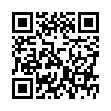Type Faster on an iPhone or iPod touch
When typing on an iPhone or iPod touch, to end a sentence quickly and get ready to start the next one, double tap the Space bar. You'll insert a period followed by a space. You can turn this shortcut on or off via the Shortcut slider in Settings > General > Keyboard.
Written by
Tonya Engst
Recent TidBITS Talk Discussions
- Alternatives to MobileMe for syncing calendars between iPad/Mac (1 message)
- Free anti-virus for the Mac (20 messages)
- iTunes 10 syncing iPod Touch 4.1 (2 messages)
- Thoughts about Ping (16 messages)
Related Articles
- Is the iPad a Kindle Killer? (31 Jan 10)
- The iPad Arrives (27 Jan 10)
- Comparing Amazon's Kindle to the iPhone and Sony Reader (19 Nov 07)
Published in TidBITS 1011.
Subscribe to our weekly email edition.
- Grassroots Movement to Create New Letters Email Client
- Apple Reports Record Sales and Profits for Q1 2010
- Firefox 3.6 Adds Trendy Shiny Stuff (But Is Still Good)
- Apple Updates Boot Camp for Windows 7
- Solving the Photoshop Elements Color Shift Problem
- TidBITS Watchlist: Notable Software Updates for 25 January 2010
- ExtraBITS for 25 January 2010
Amazon Opens Kindle to Developers, Changes Royalties
Amazon has announced that it is opening the Kindle - until now essentially just an ebook reading device - to software developers to create what Amazon is calling "active content." Developers can learn more about the Kindle Development Kit now and sign up to be notified when the beta starts next month. "Active content" will be available for free, as one-time purchases, and as subscriptions. Royalty rates weren't given, but are likely to be comparable with what Apple pays for iPhone apps.
Amazon is likely beating around the bush to avoid the term "app" because the Kindle's E-Ink screen is simply too slow for much of what we - and most others - would consider an "app." Apple may not own the term for software running on the iPhone and iPod touch, but it has certainly set a minimum standard for what an app must be capable of, and the Kindle isn't up to that bar.
I can't imagine that Kindle apps will be capable of much more than a refreshable Web page; perhaps acceptable for something like the Zagat guide mentioned in Amazon's press release or a crossword puzzle, but not much more. Worse, the Kindle's input mechanisms - a few buttons and a tremendously awkward keyboard, plus a roller bar on the original Kindle and a stubby joystick on the Kindle 2 and Kindle DX for making selections - won't lend themselves to much interactivity. It's unclear how the Kindle's free Whispernet 3G networking will be made available to developers, given the 15-cent-per-MB delivery cost Amazon quotes for books.
Lastly, the capabilities of the Kindle Development Kit seem questionable to me, given that Amazon itself hasn't yet been able to create a decent Web browser, and the Kindle ebook display code can't even handle HTML tables.
While I don't doubt that Amazon had the idea of opening up the Kindle to developers early on, as Ian Freed, vice-president for Kindle at Amazon, told the New York Times, it seems clear that the timing of the announcement is aimed directly at stealing some of the thunder away from Apple's upcoming announcement of what is widely expected to be a tablet device. Although we won't know until Wednesday if Amazon's move is likely to have a dampening effect on Apple's news, we're not betting on it.
Amazon also announced that it would be changing the royalty structure for authors and publishers who use the Kindle Digital Text Platform to publish ebooks. For books whose list price is $9.99 or less, Amazon will offer a royalty rate of 70 percent of list price (after a delivery charge that Amazon says averages about 6 cents per book). Books whose list price is higher than $9.99 or that don't meet other requirements of Amazon's new royalty structure will still fall under the standard royalty, which is 35 percent of list price.
As with the announcement of the Kindle Development Kit, the new royalty structure seems to be a response to Apple's 70 percent royalty for iPhone apps, perhaps because Amazon is worried about traditional publishers jumping ship for whatever Apple announces next week. Let's hope that if Apple's announcement does encompass publishing, individual authors and small publishers like TidBITS Publishing are allowed in, just as the App Store has been open to all developers.
Had Amazon shipped the Kindle with the Kindle Development Kit and offered a 70 percent royalty back in November 2007 (see "Comparing Amazon's Kindle to the iPhone and Sony Reader," 19 November 2007), well before Apple had opened the iPhone up to developers, it might have made more of a splash. As it is, these changes are merely fighting a rearguard action, although they will be welcome to authors and publishers who can now double their revenue from Kindle ebook sales.
 READERS LIKE YOU! Support TidBITS with a contribution today!
READERS LIKE YOU! Support TidBITS with a contribution today!<http://www.tidbits.com/about/support/contributors.html>
Special thanks this week to John & Nichola Collins, Chris Williams,
John K. Lilley, and Honeymoons By Sunset for their generous support!

